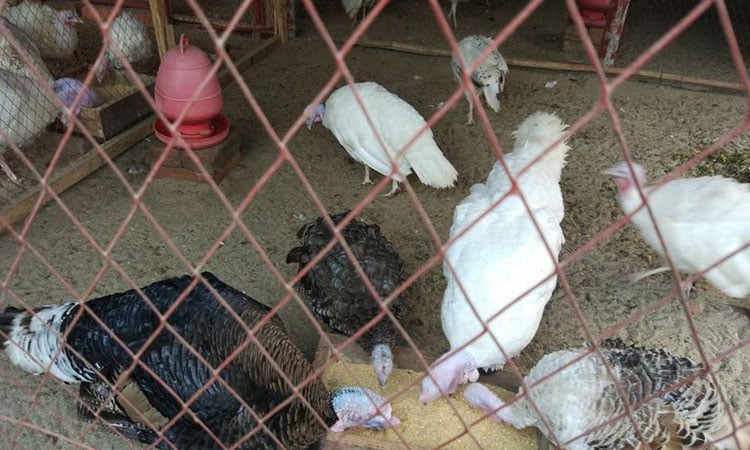News Flash


By Md Aynal Haque
RAJSHAHI, Nov 8, 2025 (BSS) - Turkey bird farming has emerged as a profitable and sustainable venture here in the region, significantly improving the livelihoods of small and marginal farmers, particularly in rural areas.
The practice is gaining popularity due to its low cost, minimal disease risk and suitability for small-scale operations.
Local farmers say turkey birds require less space than traditional poultry, can be reared in open or semi-intensive systems and feed on grass, vegetables and commercial feed, reducing overall costs. These advantages have encouraged many, including women and young entrepreneurs, to take up turkey farming as a means of income generation.
One such farmer, Mojibul Haque of Soiopara village under Mohanpur upazila, began his venture with 65 birds and now owns around 250 turkeys worth about Tk 4.75 lakh within just three to four months. The birds started laying eggs at three months of age and through hatching and sales of chicks and adult birds, he now earns more than Tk one lakh per month.
"Turkey farming has diversified the traditional poultry sector and helped many like me improve our economic condition," he said.
Another successful farmer, Mozammel Hossain of Darusha village in Paba upazila, started his farm with 65 chicks a year ago. Within nine months, he began selling eggs and chicks and now has 415 adult birds and 275 chicks. His farm produces 125 to 150 eggs daily.
"Turkey farming is ideal for small and marginal farmers as it requires less space and fewer medicines," he said.
One pair of one-month-old chicks sells for about Tk 2,000, while two-month-old pairs fetch up to Tk 3,000. He added that many local youths and housewives are starting their own farms after learning from him.
According to Dr. Ananda Kumar Adhikery, Divisional Director of the Department of Livestock Services (DLS), turkey farming is proving more profitable than traditional poultry because of lower disease risks, cheaper feeding options and minimal medicine requirements.
"It is highly suitable for smallholders due to its low input costs and high market demand," he said.
Prof. Jalal Uddin Sarder of Rajshahi University's Department of Veterinary and Animal Science also noted that turkeys' ability to eat grass and vegetables reduces dependence on costly commercial feed.
However, he pointed out challenges such as the lack of training, unavailability of specific feed and vaccines and limited marketing facilities. Despite these hurdles, he said, "Turkey farming is expanding rapidly, with over 75 commercial farms established in the region over the past couple of years."
Currently, turkey meat sells for Tk 500 to 550 per kilogram in local markets. A five-month-old bird weighing around five to six kilograms can fetch Tk 3,000 to 3,500. Farmers say that apart from low expenses, the birds' adaptability and disease resistance make turkey farming an attractive income source for rural communities.